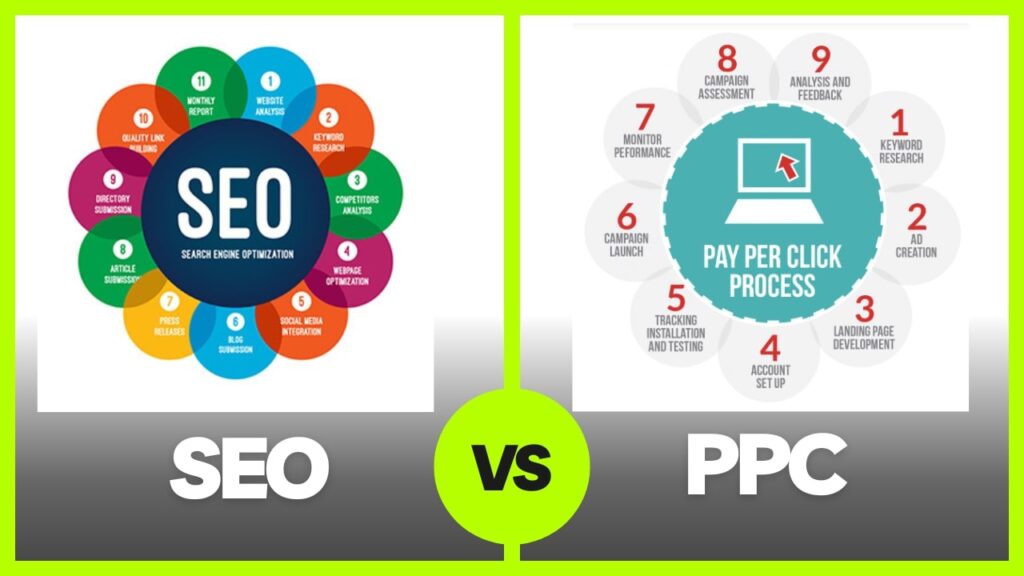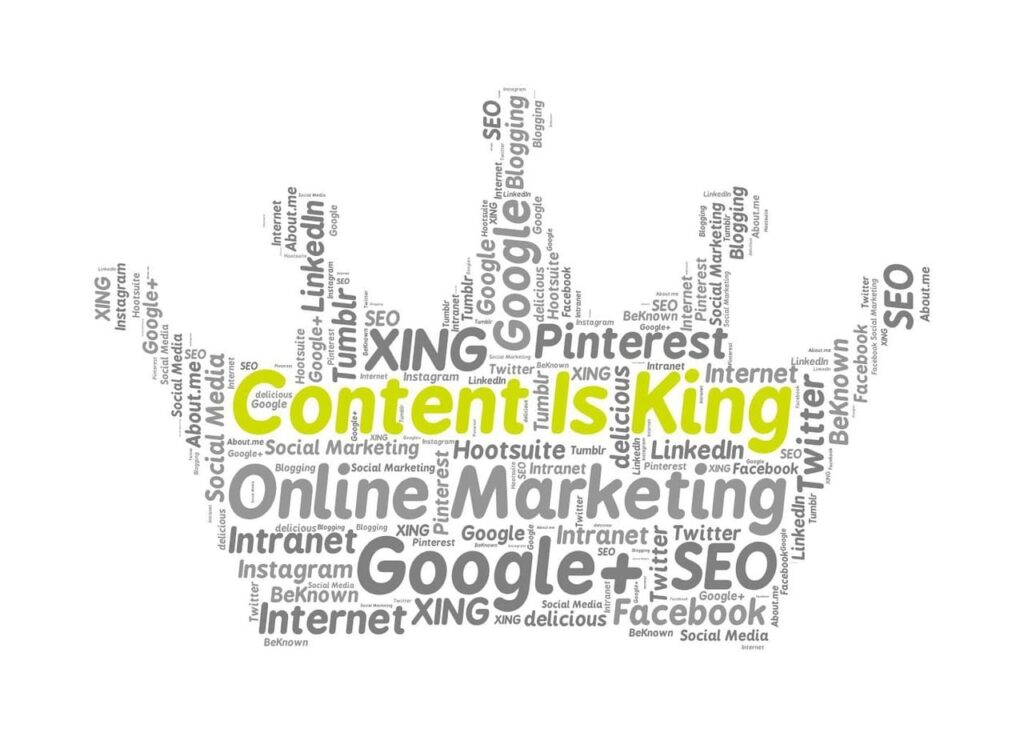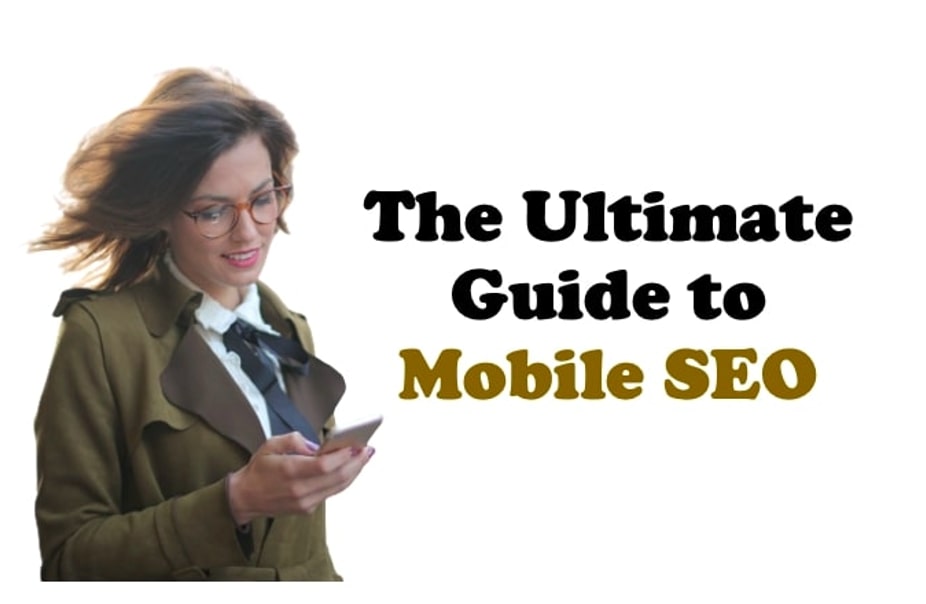SEO and PPC are two of the most popular online marketing strategies available today. SEO is a long-term strategy that focuses on organic search engine rankings, while PPC is a short-term strategy that involves paying for ads to appear in search engine results.
Each approach has its own advantages and disadvantages, so it’s important to consider which one would be best for your brand’s needs and goals. This post will compare SEO vs. PPC, discuss their respective benefits and drawbacks, and provide tips on how to decide which is the best strategy for your business.
Quick Links
Brief Overview: SEO and PPC
SEO (Search Engine Optimization) and PPC (Pay-Per-Click) are two of the most popular digital marketing strategies used by businesses to increase their online visibility.
SEO focuses on optimizing a website for organic search engine rankings, while PPC is a paid marketing strategy that involves placing ads on search engine results pages. Both strategies can be used to drive more traffic to your website, increase brand awareness, and generate leads or sales.
Search Engine Optimization
Search Engine Optimization (SEO) is the process of optimizing a website or web page to improve its visibility and ranking on search engine results pages (SERPs) by making changes to its content, structure, and navigation to make it more attractive to search engines.
This is done by using keywords and phrases relevant to the website’s content, as well as by improving the website’s user experience, speed optimization, mobile-friendliness, on-page optimization, and off-page optimization.
The goal of SEO is to increase organic (non-paid) traffic to a website by making it more likely to appear at the top of search engine results for relevant queries.
It is a long-term and stable marketing strategy and produces a fruitful result if we adopt the best SEO strategy.
Pay Per Click
Pay Per Click (PPC) advertising is a form of digital advertising in which advertisers pay each time a user clicks on one of their ads.
PPC ads typically appear at the top or side of search engine results pages (SERPs), and can also be placed on websites and social media platforms.
Advertisers can target specific audiences and demographics by using keywords, location, and other criteria.
PPC advertising can be an effective way to drive traffic to a website and generate leads or sales, as the advertiser only pays when a user clicks on their ad.
However, it can also be costly if not managed carefully, as the advertiser pays for each click, regardless of whether or not it results in a conversion.
Comparison: SEO Vs PPC
SEO (Search Engine Optimization) and PPC (Pay-Per-Click) are two of the most popular digital marketing strategies used by businesses to increase their online visibility. SEO focuses on optimizing a website for organic search engine rankings, while PPC is a paid marketing strategy that involves placing ads on search engine results pages.
Both strategies can be used to drive more traffic to your website, increase brand awareness, and generate leads or sales. When used together, SEO and PPC can offer an effective way to reach potential customers and maximize your online presence.

The Best Strategy For My Brand
SEO and PPC are both valuable digital marketing strategies that can help promote your brand and drive more traffic to your website. However, the best strategy for your brand will depend on your specific goals, budget, and target audience. Here are ten factors to consider when deciding between SEO and PPC:
Goal of Your Brand
SEO is best for long-term brand building and organic traffic growth, while PPC is better for immediate results and targeted advertising.
SEO involves optimizing your website content and structure so that it appears higher in search engine results pages (SERPs). This helps you get more organic traffic from people who are searching for what you offer. It also helps build trust with potential customers, as they know your website is authoritative and reliable.
On the other hand, PPC involves paying for ads to appear on SERPs when people search for certain keywords related to your business. This allows you to target specific audiences with tailored ads, resulting in more qualified leads. However, this requires a significant investment of time and money in order to get the desired results.
Budget of Your Brand
Pay-per-click (PPC) and search engine optimization (SEO) are two of the most popular digital marketing tactics used by businesses. While PPC allows you to quickly reach your target audience, it can be more expensive than SEO in the long run.
With PPC, you need to pay for each click on your ads, whereas with SEO you don’t have to pay for each click. Additionally, SEO is more cost-effective in the long run as it helps you build a strong online presence and organic traffic which will be beneficial in the future.
Target Audience
SEO (Search Engine Optimization) is a method of optimizing webpages to rank higher in search engine results pages, which allows businesses to reach a broad, general audience. On the other hand, PPC (Pay-Per-Click) is an online advertising model that allows businesses to target specific demographics and interests with ads that appear on search engine results pages.
Competitive Landscape
SEO can be a difficult task in highly competitive industries, as it requires a lot of time and effort to rank for the desired keywords. On the other hand, PPC (Pay-Per-Click) allows you to bid on specific keywords and get your ads in front of your target audience quickly.
With PPC, you can have more control over who sees your ads and when they are seen. It is also a great way to test out different strategies without having to invest too much time or money into SEO. PPC is an effective tool for businesses looking to reach their target audience quickly and efficiently.
Brand Awareness
SEO is a long-term strategy that focuses on optimizing content for search engines, while PPC is a short-term strategy that focuses on buying targeted ads to drive immediate traffic to your website.
SEO is more effective for building brand awareness over time, as it helps you create content that is optimized for search engines and can be found by potential customers. This means you can establish yourself as an authoritative source in your niche and gain the trust of potential customers.
On the other hand, PPC can be used to drive immediate brand awareness by targeting specific audiences with relevant ads that lead them directly to your website or landing page.
Measurable Results
Pay-per-click (PPC) is an effective way to promote your business online and measure the success of your campaigns. Unlike SEO, where you can only track organic traffic, PPC allows you to track clicks, optimize conversions, and Return on Investment (ROI). This makes it easier for marketers to understand the effectiveness of their campaigns and make adjustments as needed.
With the help of detailed analytics and reporting tools, PPC allows you to see what’s working and what’s not in real time. You can also use A/B testing to compare different versions of ads and optimize them for better performance. This helps marketers make informed decisions quickly so they can maximize their ROI in the long run.
Brand Control
SEO (Search Engine Optimization) gives you more control over your online presence by optimizing your website for search engines. It helps you rank higher in organic search results, and it’s a great way to build trust with potential customers.
On the other hand, PPC (Pay-Per-Click) advertising puts you at the mercy of search engine advertisement algorithms. With PPC, you have to pay for each click on your advertisement, so it can become costly if not managed properly.
Flexibility
SEO requires consistent effort to maintain and improve rankings, while PPC campaigns can be adjusted or paused at any time.
SEO is a long-term strategy that requires ongoing optimization efforts to ensure that your website is well-positioned in the search engine results pages (SERPs). This includes optimizing content for keywords, building backlinks, and keeping up with algorithm changes.
On the other hand, PPC campaigns can be adjusted or paused at any time depending on your budget and goals. This makes it ideal for businesses looking for more control over their digital marketing efforts.
Brand Loyalty
SEO focuses on long-term brand loyalty, as it helps to build trust and credibility over time. On the other hand, PPC is a short-term strategy that focuses on driving conversions in the short term. By combining the two strategies, businesses can benefit from both sides of the coin – establishing a strong brand presence and driving immediate conversions.
SEO helps to build trust with customers by providing them with quality content that is relevant to their needs. It also helps to make sure that customers can find your website easily when they search for it online. PPC, on the other hand, allows businesses to target specific audiences and drive quick conversions through targeted ads.
Integration
SEO and PPC can be a powerful combination when it comes to digital marketing. By combining the two, you can create a comprehensive strategy that drives both immediate results and long-term growth.
With SEO, you focus on organic search engine rankings while PPC provides an opportunity to quickly get your message out in front of potential customers. When used together, these strategies will help you build visibility, generate leads, and increase conversions.
By understanding the strengths of each approach and leveraging them to complement one another, you can create a comprehensive digital marketing strategy that will help your business reach its goals.
By combining the two approaches, businesses can maximize their visibility in search engine results pages (SERPs) while also taking advantage of paid advertising opportunities to reach potential customers quickly.
With a well-planned SEO and PPC strategy, businesses can enjoy increased website traffic, improved brand awareness, and higher conversion rates.
Final Thoughts
SEO and PPC are two of the most popular digital marketing strategies used by businesses today. SEO (Search Engine Optimization) focuses on improving organic search engine rankings while PPC (Pay-Per-Click) involves paying for ads to appear in search engine results.
Both strategies have their own advantages and disadvantages, so it is important to consider which one is best suited for your brand before investing in either of them.
Goals: SEO is best for long-term brand building and organic traffic growth, while PPC is better for immediate results and targeted advertising.
Budget: PPC can be more expensive than SEO, as you need to pay for each click on your ads. SEO, on the other hand, can be more cost-effective in the long run.
Target audience: SEO is best for reaching a broad, general audience, while PPC allows you to target specific demographics and interests.
Competitive landscape: SEO can be more challenging in highly competitive industries, while PPC allows you to bid on specific keywords and get your ads in front of your target audience more quickly.
Brand awareness: SEO is more effective for building brand awareness over time, while PPC can be used to drive immediate brand awareness.
Measurable results: PPC is more measurable than SEO, as you can track clicks, conversions and ROI.
Brand control: SEO gives you more control over your brand’s online presence, while PPC puts you at the mercy of the search engine algorithms.
Flexibility: SEO requires consistent effort to maintain and improve rankings, while PPC campaigns can be adjusted or paused at any time.
Brand loyalty: SEO can help to establish brand loyalty, as it helps to build trust and credibility over time. PPC, on the other hand, focuses on short-term conversions.
Integration: SEO and PPC can work together to give you a comprehensive digital marketing strategy that drives both immediate results and long-term growth.
In conclusion, both SEO and PPC have their own benefits and drawbacks.
The best strategy for your brand will depend on your specific goals, budget, and target audience. It’s important to consider both options and find a balance that works for your business.
Sharing is Caring

























